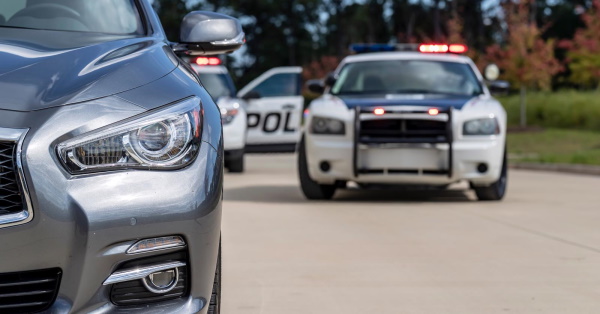If you exhibit any signs of drunkenness, a police officer in Portland can stop you to investigate whether it is a DUI case or not. Of course, this is only possible if your driving pattern seems unsafe or shows that you don’t have an optimal grasp over your motor senses, i.e. if you’re speeding, constantly braking, showing delayed reactions to stimuli, and so on.
Let’s assume that this is the case with you, and you are stopped by a police officer. What should be your next move? What are your options? In this article, we’ll go through the basic steps of how you can deal with an arresting officer in a DUI (assuming that you were guilty in the first place), and how you can ensure that you don’t compromise your rights.
But before we do so, please note that in any DUI case, your DUI defense lawyer should be the only person you open up to, no one else.
Stay Calm & Follow the Instructions
A police officer is a person in authority, in this case, no matter who you are. But at the same time, they are only human – if you act reasonably, you won’t arouse a harsh reaction from them. They’ll ask you to step out of your car if they’re sure that you were engaged in DUI.
Then, they’ll ask you to go through a breathalyzer test, also known as an alcotest. This will give them a measure of your blood alcohol concentration. You can’t refuse this test, even if you’re not drunk and feel offended that you have to go through with it.
Remember, authority lies with the cop here, and if you say no to a legal obligation, there will be consequences. But we won’t go there, assuming that you follow the instructions and stay at your best behavior throughout this event.
You Don’t Have to Say Yes to Everything
Of course, there are limitations to your cooperation. You are only obliged to act nice and give an alcotest to the police officer, the rest will be more or less under your control. Even if the test comes up as positive and the officer tells you that you will be arrested for DUI, you have rights.
Firstly, the officer will have to announce your rights so that you know what you have to do and what you can say no to. For instance, you are not obliged to allow a search of your car. If the arresting officer searches through your vehicle without your express consent, then the evidence can be deemed inadmissible in the court (you’ll have to file a motion later on).
Similarly, you don’t have to go through the field sobriety tests or FSTs if you don’t feel like it. The officers also can’t extract any statements from you unless you choose to tell them something – please don’t, your lawyer should be the first person to hear anything from you.
Choose to Stay Silent
The right to silence is one of your most basic rights in the matter. Apart from basic questioning, you are not bound to say anything to the police that you feel you should discuss with your DUI defense lawyer first. It’s okay to provide the officer with very basic info, if they ask for it, like your name and stuff (they’ll get that information from your license anyways).
But as for deeper questions like “how much did you drink,” or “where are you coming from,” and so on, you are not legally required to give an answer. You can tell the officer, very politely, that you’d like to exercise your right to stay silent, and this is the more prudent course.
Also, remember that the police officer cannot treat you differently or harshly if you choose to exercise your legal rights. If you were cooperative and faced abuse from the officer at any point, then this will be an important factor in your case, and you should tell your DUI defense lawyer all about it.
As Soon as You Can, Call a DUI Defense Lawyer
As we mentioned earlier, you should never discuss your case with anyone but your DUI defense attorney. This is because your words and statements can be used against you even when you least expect it, only your lawyer is your true friend here.
If you ever find yourself in such trouble, feel free to contact the Trilogy Law Group for legal assistance and representation.



